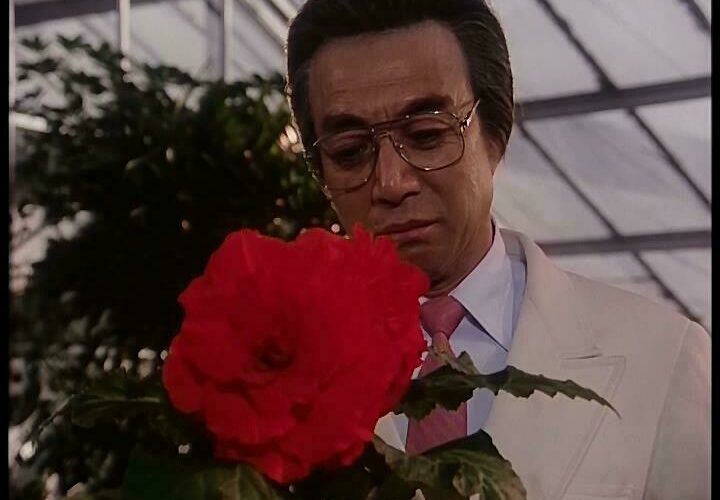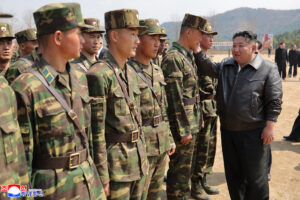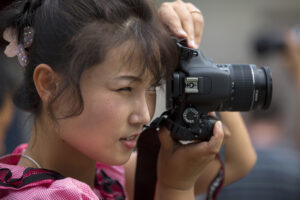When on one of my recent lectures on North Korean propaganda I demonstrated a North Korean feature film Story of a Blooming Flower, during a break I was approached by a puzzled South Korean student. “Seonsaengnim, are you sure that this film was made in the DPRK?” he asked. “How come that the Japanese characters are so nice here?”
I do not blame the student for this confusion. Indeed, this film, screened in 1992 seems to break the steady stereotype of North Korean propaganda according to which the Japanese ought to be portrayed exclusively as bestial creatures with crooked teeth, thin mustaches and sadistic smiles. From the first scenes of Story we see totally different Japanese characters. These people are perfectly shaved and checked by the dentist; they are beautifully dressed and well-behaved; they are connected by loving loyalty, sentimental friendship and closely knit family ties. Their lives are focused on meaningful and spiritual things, such as a creation of a new sort of flower, or unification with the other peace-loving Japanese in order to protest wars, or repayment of moral duty to one’s deceased mother.
When on one of my recent lectures on North Korean propaganda I demonstrated a North Korean feature film Story of a Blooming Flower, during a break I was approached by a puzzled South Korean student. “Seonsaengnim, are you sure that this film was made in the DPRK?” he asked. “How come that the Japanese characters are so nice here?”
I do not blame the student for this confusion. Indeed, this film, screened in 1992 seems to break the steady stereotype of North Korean propaganda according to which the Japanese ought to be portrayed exclusively as bestial creatures with crooked teeth, thin mustaches and sadistic smiles. From the first scenes of Story we see totally different Japanese characters. These people are perfectly shaved and checked by the dentist; they are beautifully dressed and well-behaved; they are connected by loving loyalty, sentimental friendship and closely knit family ties. Their lives are focused on meaningful and spiritual things, such as a creation of a new sort of flower, or unification with the other peace-loving Japanese in order to protest wars, or repayment of moral duty to one’s deceased mother.
Try unlimited access
Only $1 for four weeks
-
Unlimited access to all of NK News: reporting, investigations, analysis
-
Year-one discount if you continue past $1 trial period
-
The NK News Daily Update, an email newsletter to keep you in the loop
-
Searchable archive of all content, photo galleries, special columns
-
Contact NK News reporters with tips or requests for reporting
Get unlimited access to all NK News content, including original reporting, investigations, and analyses by our team of DPRK experts.
Subscribe
now
All major cards accepted. No commitments – you can cancel any time.










